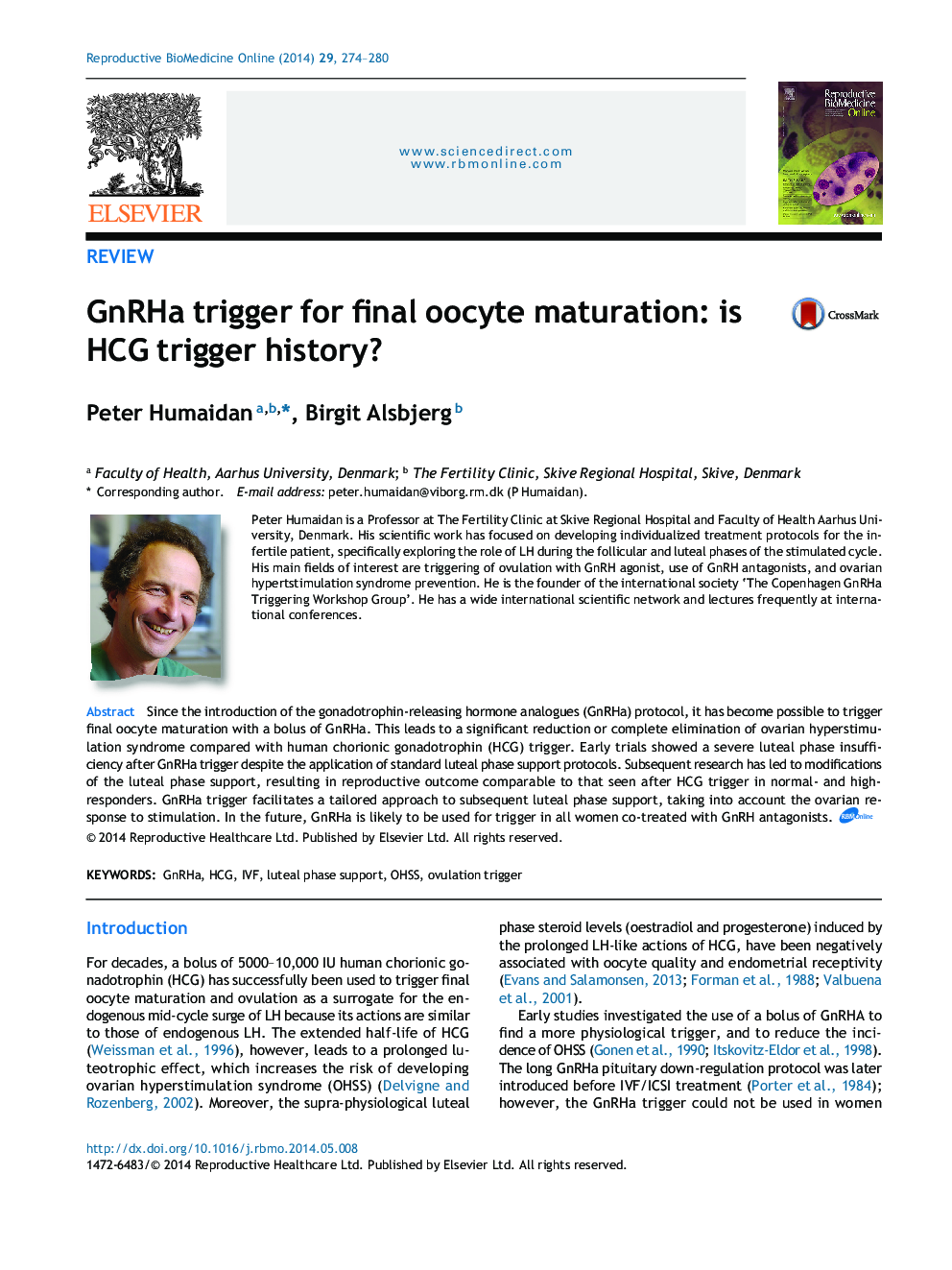| Article ID | Journal | Published Year | Pages | File Type |
|---|---|---|---|---|
| 3970115 | Reproductive BioMedicine Online | 2014 | 7 Pages |
Since the introduction of the gonadotrophin-releasing hormone analogues (GnRHa) protocol, it has become possible to trigger final oocyte maturation with a bolus of GnRHa. This leads to a significant reduction or complete elimination of ovarian hyperstimulation syndrome compared with human chorionic gonadotrophin (HCG) trigger. Early trials showed a severe luteal phase insufficiency after GnRHa trigger despite the application of standard luteal phase support protocols. Subsequent research has led to modifications of the luteal phase support, resulting in reproductive outcome comparable to that seen after HCG trigger in normal- and high-responders. GnRHa trigger facilitates a tailored approach to subsequent luteal phase support, taking into account the ovarian response to stimulation. In the future, GnRHa is likely to be used for trigger in all women co-treated with GnRH antagonists.
